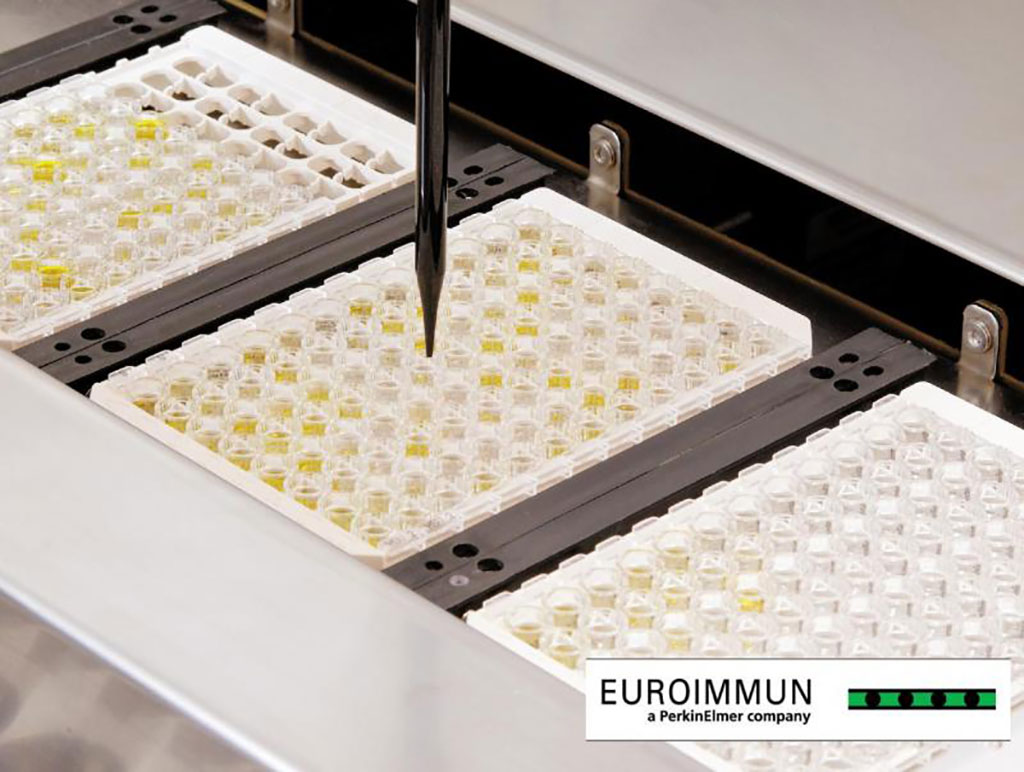Recombinant ELISAs Increase Efficiency of CMV Serodiagnosis in Pregnant Women
Posted on 21 Feb 2023
Cytomegalovirus (CMV) is a virus that is prevalent across the world and poses a significant risk during pregnancy due to vertical transmission to the fetus. Long-term sequelae in newborns can be particularly severe when primary maternal infection occurs in the first trimester. Hence, screening for CMV throughout pregnancy is important to identify primary infections and establish the timepoint of infection. Many pregnant women have previously been infected with CMV, as shown by the presence of IgG antibodies, although about 0.5% seroconvert during pregnancy.
Classical CMV serology for risk assessment involves the use of lysate-based tests to determine IgM antibodies, IgG seroconversion and IgG avidity. However, this approach usually requires two sequential samples to provide meaningful results, particularly if pre-pregnancy samples are unavailable for comparison. Antibodies against the recombinant antigens p52 (IgM) and glycoprotein B (IgG) have previously proved to be accurate second-line markers for confirmation of results and for dating infections. p52 IgM is a specific marker of the early phase of infection, while anti-gB IgG represents a late-phase marker that could serve as an alternative to high-avidity IgG.

In a collaborative study, scientists at Limbach Labor MVZ Westmecklenburg (Schwerin, Germany) investigated the efficiency of using anti-p52 IgM and anti-gB IgG as first-line tests for CMV serological screening. They examined routine serum samples from 553 pregnant women using two different strategies: determination of IgM, IgG and avidity using lysate-based ELISAs or determination of anti-p52 IgM and anti-gB IgG using recombinant ELISAs from EUROIMMUN (Luebeck, Germany). The study aimed to categorize patients into the following groups: susceptible to infection, acute primary infection, recurrent infection/reactivation or past infection.
Using the lysate-based assays, 84.6% of samples yielded conclusive results in first-line testing, while the remaining 15.4% required follow-up testing of a consecutive sample. In contrast, measurement of anti-p52 IgM and anti-gB IgG produced conclusive results in first-line testing for 92.8% of samples, with only 7.2% requiring follow-up. Thus, the number of samples requiring follow-up could be significantly reduced using the recombinant test strategy.
The authors concluded that the first-line use of ELISAs measuring anti-p52 IgM and anti-gB IgG increases the number of conclusive results derived from an initial serum sample while requiring a considerably lower number of tests as compared to the lysate-based approach. This could have significant practical relevance by reducing the laboratory workload and the costs involved in maternal CMV serodiagnostics. The study was published on January 26 in the Journal of Virological Methods.
Related Links:
Limbach Labor MVZ Westmecklenburg
EUROIMMUN














